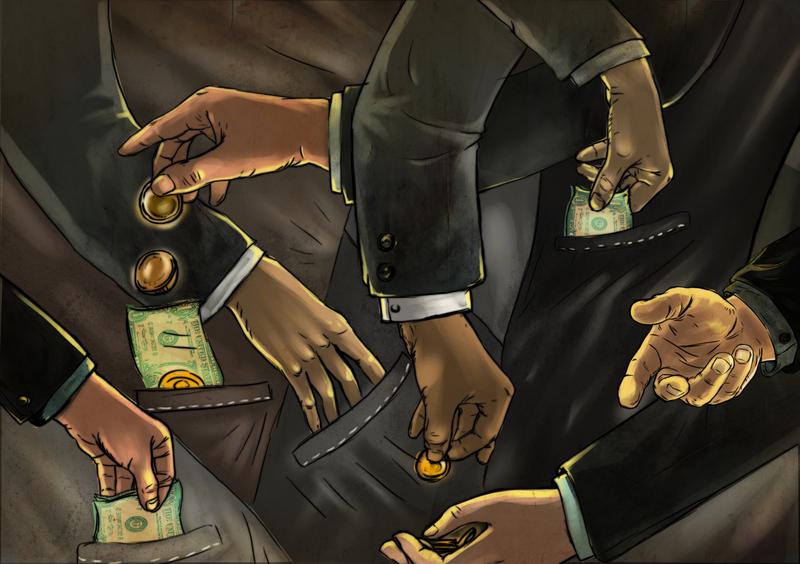How Corruption in Procurement Undermines Corporations and Lessons for the Future
When Siemens, the industrial giant synonymous with German engineering precision, faced a $1.6 billion fine for bribery scandals that spanned continents, the world took notice. It wasn’t just the scale of the bribes—over $1.4 billion—that shocked global markets, but the ripple effects the scandal unleashed. Siemens’ reputation, shareholder value, and operations all came under fire, forcing the company into a years-long battle to restore trust and stability.
Corruption in procurement, often perceived as a hidden issue confined to boardrooms and back offices, can quickly spiral into a corporate crisis. From Brazil’s Petrobras to Odebrecht, the damage extends beyond the immediate fines and legal fees, often leading to erosion of public trust, diminished shareholder value, and long-term harm to a company's operational resilience.
As businesses enter 2025, the stakes are higher than ever. Procurement leaders must reckon with the lessons of the past while fortifying systems against modern vulnerabilities.
The Siemens Scandal - When Efficiency Meets Ethical Failure
For Siemens, a company long regarded as a symbol of German industrial dominance, the bribery scandal of the late 2000s was a watershed moment. The company admitted to paying bribes to secure contracts in countries such as Russia, Venezuela, and Nigeria. The fallout was swift and brutal:
Shareholder Value Plummets
At the height of the scandal, Siemens’ share price fell by 20%. Investors questioned not only the company’s leadership but also the integrity of its operations, leading to significant market volatility.
Operational Overhaul
Siemens committed to a comprehensive transformation, including hiring a new CEO, establishing a compliance department, and overhauling procurement processes. While these changes were necessary, they required significant financial and cultural investments.
Lingering Stigma
Despite reforms, Siemens struggled for years to shake off the shadow of its bribery scandal. Every new deal or government contract brought renewed scrutiny from regulators and the media.
Petrobras - A National Icon Tarnished
In Brazil, the corruption scandal involving state-controlled oil giant Petrobras became emblematic of systemic issues in procurement and governance. At the heart of the investigation, known as Operation Car Wash, was a scheme where executives and contractors colluded to inflate contract values, siphoning billions of dollars into personal accounts and political campaigns.
Economic Collapse
Petrobras’ corruption scandal didn’t just affect the company; it destabilized Brazil’s entire economy. The company lost over 80% of its share value, and the nation plunged into a recession, with unemployment soaring and public protests erupting nationwide.
Loss of Public Trust
Once a source of national pride, Petrobras became a symbol of greed and corruption. Its reputation suffered irreparable harm, making it difficult to attract investment or secure new contracts.
Global Implications
International partners and suppliers severed ties, citing ethical concerns and compliance risks. Petrobras’ supply chain became a cautionary tale for businesses operating in emerging markets.
Odebrecht - A Corruption Web Across Continents
Odebrecht, a Brazilian construction conglomerate, operated what many have called the largest bribery scheme in corporate history. Spanning 12 countries, the company paid over $788 million in bribes to secure lucrative infrastructure projects. The consequences were catastrophic:
Record-Breaking Fines
Odebrecht paid $2.6 billion in settlements to authorities in Brazil, the US, and Switzerland. Top executives, including the CEO, were imprisoned, and the company faced ongoing legal battles in multiple jurisdictions.
Reputational Ruin
The Odebrecht name became synonymous with corruption. The company was forced to rebrand, but its ability to secure new contracts remained severely limited.
Industry-Wide Scrutiny
Governments and regulatory bodies worldwide ramped up oversight of international procurement contracts, leading to stricter compliance requirements and more transparent bidding processes.
The Ripple Effects of Corruption
The financial penalties imposed on companies like Siemens, Petrobras, and Odebrecht are staggering, but they only scratch the surface of the broader impact:
Erosion of Trust
Customers, suppliers, and investors become wary of companies implicated in corruption scandals, leading to lost business and strained partnerships.
Cultural Fallout
Within the organization, employees may feel demoralized or disillusioned, leading to higher turnover and lower productivity. Ethical lapses at the top often create a toxic work environment.
Regulatory Oversight
Companies found guilty of corruption face heightened scrutiny, limiting their ability to expand into new markets or pursue government contracts.
Lessons for Procurement Professionals in 2025
The procurement landscape has evolved significantly, with new tools and technologies offering ways to prevent and detect corruption. The following strategies, inspired by companies that have successfully recovered from scandals, are essential:
Embrace Transparency
Nestlé and Unilever have implemented transparent supplier selection processes, using digital platforms to ensure every step is documented and auditable. Transparency not only deters corruption but also builds trust with stakeholders.
Leverage Technology
Walmart has turned to blockchain to trace its food supply chain, ensuring every transaction is recorded and immutable. This approach can be applied to procurement contracts, reducing the risk of fraud and ensuring accountability.
Invest in Ethical Training
Post-scandal Siemens launched a comprehensive compliance training program for all employees, fostering a culture of integrity. Procurement leaders must prioritize training that goes beyond legal requirements, emphasizing the long-term benefits of ethical practices.
Establish Independent Oversight
Petrobras has introduced third-party audits and independent compliance officers to monitor procurement activities. These measures, while costly, have proven effective in rebuilding trust.
Corruption-Proofing Procurement
As procurement professionals face increasing pressure to deliver value while adhering to stringent ethical standards, the lessons from Siemens, Petrobras, and Odebrecht are clear. Transparency, technology, and training are not optional—they are fundamental to success in today’s global marketplace.
For businesses navigating 2025, the question is not whether they can afford to invest in anti-corruption measures but whether they can afford not to. The cost of inaction is too high, as history has shown time and time again.
Langley Search and Interim, Your Partner in Ethical Procurement
Langley Search and Interim specializes in connecting organizations with procurement professionals who value transparency and innovation. Whether you're building a new procurement team or looking to strengthen existing operations, Langley provides the expertise you need to navigate today’s complex ethical landscape.


